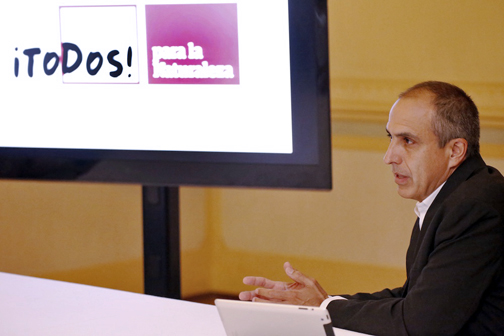FEMA awards $1M to Conservation Trust of Puerto Rico

The Conservation Trust of Puerto Rico, a nonprofit focused on the conservation of ecologically valuable land on the island, was granted more than $1 million by the Federal Emergency Management Agency (FEMA) for repairs to its headquarters and other facilities affected by Hurricane María, including the San Cristóbal Canyon, Hacienda Buena Vista and the Ramón Power y Giralt House.
“The Trust’s work to preserve these lands is an integral part of Puerto Rico’s recovery and it is a mission that transcends future generations. Our national heritage is irreplaceable and we at FEMA are very pleased to be able to collaborate with the work the Trust is doing for the well-being of our island,” said José G. Baquero, FEMA’s federal disaster recovery coordinator.
With funds from this obligation, repairs were made to the former Lions Club structure in the San Cristóbal Canyon, which is used by the reserve staff and for community activities. The repairs addressed the roof, electrical system, doors and windows.
Another obligation of nearly $4,500 was directed to restore the irrigation and electrical systems in the nurseries and Casa Los Llanos.
Para La Naturaleza’s environmental interpreter, Roberto J. Celpa-Rondón, said the nurseries are used for the reproduction of endangered species and include some such as the Cornutia obovata, an endemic plant of Puerto Rico, and others such as “palo de ramón” and “palo de jazmín.”
“The protection that the nature reserve is giving to the bodies of water that run inside the canyon is also important. We have three bodies of water nearby, the Barranquitas River or Piñona River and the Aibonito River that join the Usabón River, which in turn is a tributary of the La Plata River, so we are protecting a very important watershed that provides water to many people in the island’s metropolitan area,” he added.
Another protected area of high ecological value is Hacienda Buena Vista in Ponce, an important coffee and fruit plantation built in 1845. It is a historic space with structures that are more than a century old and a hydraulic turbine that is unique in the world and is still operational.
At the Hacienda, nearly $248,000 will be used to repair the old garage, which dates to the 1900s and is currently used as a store. An additional $64,000 allowed the Trust to complete other repairs to the store, as well as to the main house, the warehouse, the offices and the former slave quarters and coffee dryer, where wood and masonry walls, corrugated metal and wood ceilings and interior walls, among others, were repaired.
The superintendent of the Trust’s Southern Region, Mariana Rivera-Figueroa, said that from the hacienda’s visitor center, 23 protected natural areas from Guayama to Cabo Rojo are overseen.
“We also work on many projects that have to do with environmental education, historical education and reforestation. We also have a native tree nursery, an agroecological garden, a medicinal garden, an agroforestry cacao and a coffee field,” she added.
At the Trust’s headquarters, the Ramón Power y Giralt House in Old San Juan, repairs were made to preserve the historic structure. The building is an example of 18th and 19th century Spanish colonial architecture and was the home of Ramón Power y Giralt, the first Puerto Rican deputy in the Cádiz Courts in Spain.
The two-story building, with masonry walls and brick panels over ausubo beams and window sills, was acquired by the Trust in 1989 and was restored in accordance with the Institute of Puerto Rican Culture’s historic rehabilitation guidelines for Old San Juan. Part of the repairs included replacing the wood doors and balconies, cleaning humidity stains and replacing the waterproofing treatment on the roof.
For the Trust, the ability to restore historic sites and natural areas is essential to its conservation efforts, officials said.
“Through Para La Naturaleza, founded 54 years ago, we integrate society in the conservation of natural ecosystems and the restoration of historic sites in Puerto Rico through educational programs, volunteerism, citizen science, agroecology, reforestation and community partnerships,” the entity stated.
The Trust has about 65,000 annual participations, including tours for communities and schools, volunteering initiatives and crowdsourcing.







